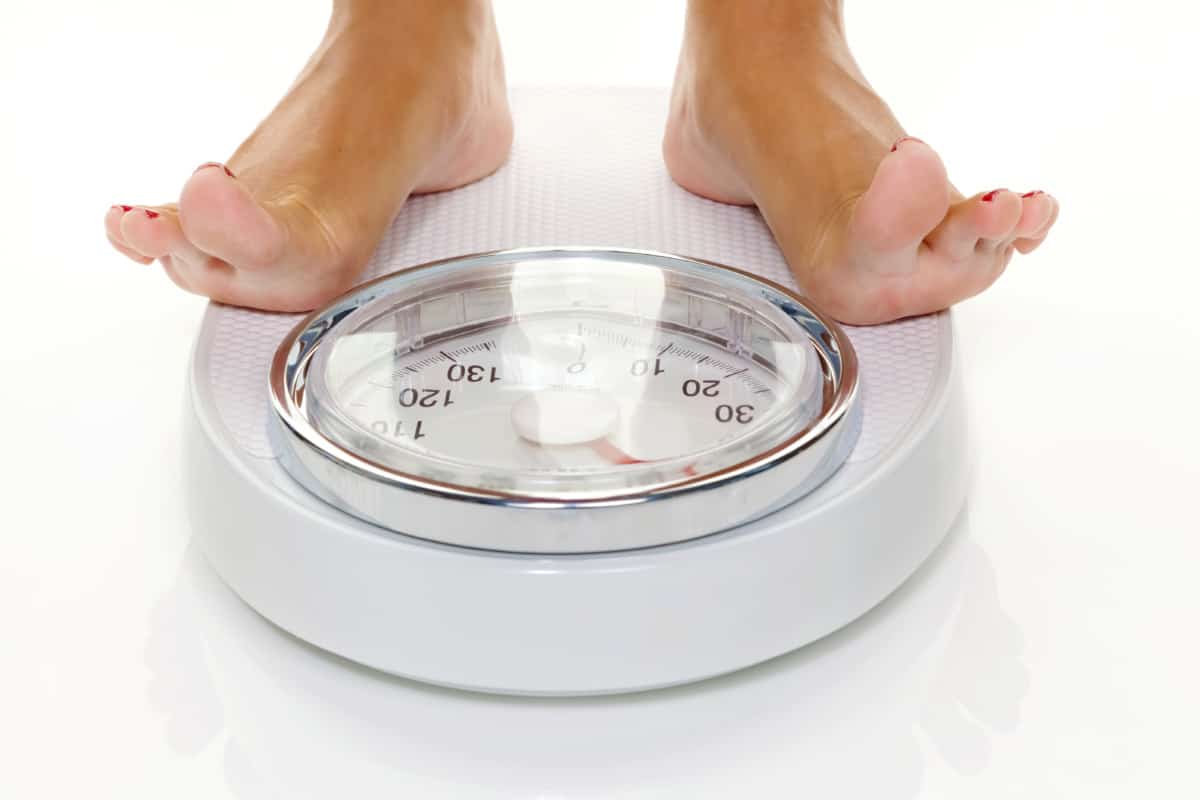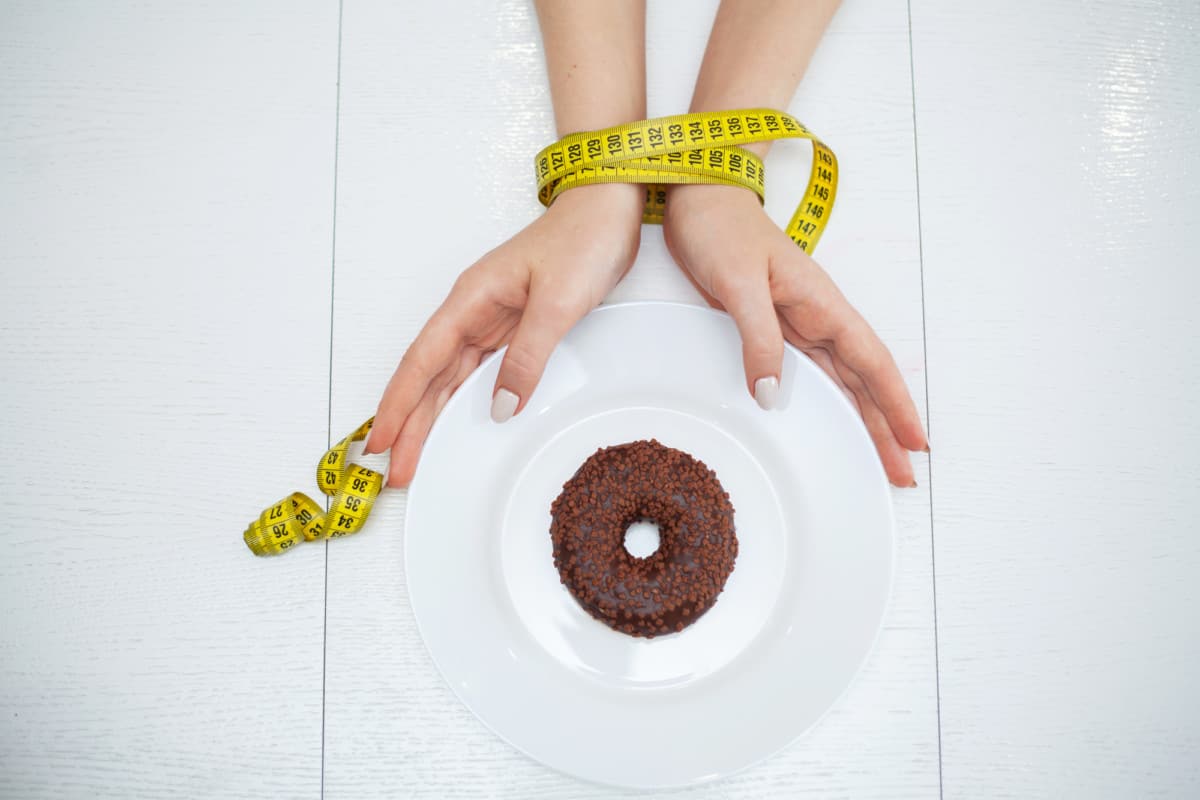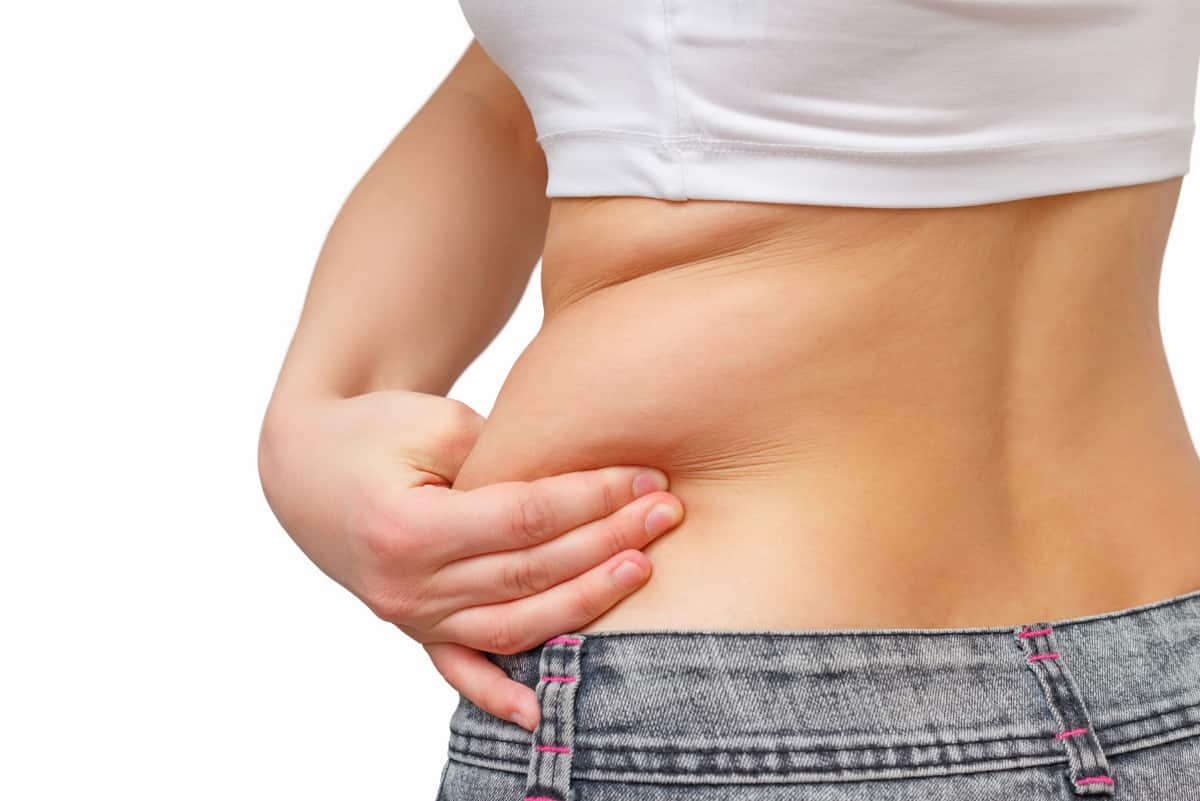So you want to know how much weight you can lose with fasting? You’ll find out everything you need to know here…
Intermittent fasting is one of the most popular dieting trends and for a good reason. Fasting might seem new in popularity but it’s been around since the dawn of mankind (1). Only in the last couple hundred years or so has food been readily available to the point you can drive to the grocery store for a bag of potato chips.
But throughout the rest of mankind food was a lot harder to come by. So our bodies evolved to go long periods without any food coming in. This process resulted in the burning of fat stores for fuel. And today intermittent fasting means more weight and fat loss for you.
Yet not everybody doing an intermittent or intermediate fasting diet is going to get the best results. A lot of your results are going to depend on a few factors that you should know about to lose the most amount of weight.
Intermittent Fasting the Best for Weight Loss

I’ve been a personal trainer and nutrition coach since the mid-2000s and intermittent fasting is without a doubt the most effective diet for weight loss and slowing aging (2). It’s also very simple to follow since you’ll just be restricting the times you’re allowed to eat.
With intermittent fasting your body doesn’t have any calories coming in. This allows your body to feed off your fat stores as an energy source (3). Since you’re restricting your feeding hours you’ll instantly be cutting down on how many calories you’re eating (4). Lowering your caloric intake does play a significant role in how much weight you’re able to lose (5).
Finally, your body will release fat-burning hormones such as human growth hormone (6). This helps to preserve lean muscle mass which is needed to get a toned and slim physique (7). But don’t worry about getting big bulky muscle mass from fasting.
But a lot of the weight you’ll lose with intermittent fasting depends on how much you have to lose in the first place. If you only have 10 pounds or so to lose then the results will be lesser if only doing it for a short time. But if you have more than 30 pounds to lose then your results will be much more.
You can expect to lose the most weight in the beginning few months and then it’ll start to slow down from there. And if you’re trying to break through a weight-loss plateau then fasting for longer hours can get you there too (8).
There are a few factors that you should know about when intermittent fasting to get the best results. The biggest two are how long you’re fasting for and what you’re eating the rest of the time. Most people make the mistake of binge eating during their feeding windows (9). They end up doing this because they’re hungry from the long fast.
But this can quickly undo all the hard work you’ve done during your fasting window. It’s key to at least follow a normal diet and not binge eat on junk food and excess calories (10).
How long you’re intermittent fasting for will also determine how much weight you lose. The shorter the fast the fewer results you can expect. And on the other side of the coin the longer you fast the better results you should get (11). The trick here is if you’re just starting then fasting for longer periods can be a little too difficult. This can result in the dreaded “hunger pangs” that’ll make you want to give up on fasting for good because it’ll be too hard (12).
I prefer to start people off with a shorter intermittent fasting window then working their way up from there. 13 hours is usually the preferred intermittent fasting time if you’re a total beginner who’s used to eating all the time. But if you regularly skip breakfast or meals then you could easily start with a 16 hour fast.
Ideally, you’d get your fasting window time to 18 hours a day with some 23-hour fasts a handful of times a month. But it’s best to work your way up to that to get the best long term results.
Health Benefits of Fasting

The big benefit of picking intermittent fasting for your nutrition plan is it’s so sustainable. With other diets you’re either constantly counting calories, can only eat certain foods, or always cutting macronutrients. For example, the keto diet is quite effective for weight loss but the fact that you have to cut out your carbs forever isn’t a sustainable diet for the majority of people (13). I mean imagine never being able to eat pizza, pasta, cookies, cereal, beer, wine, etc. ever again.
With intermittent fasting the big thing you have to be mindful of is to not eat during your fast. This is so simple anybody can follow it long term. But that doesn’t always mean it’s easy. There are times when you’re going to get hungry and tempted to eat. And then there are other times when social situations put you in a sticky position that practically force you to eat.
But let’s say you go out with friends for dinner and end up eating and drinking until midnight. The good part with intermittent fasting is you just restart your fasting clock and wait a little longer to eat the next day. It’s not like every other diet where you mess up by eating the wrong kind of food and then all your results go out the window.
It’s always best to limit your calories to your basal metabolic rate (BMR). Then pick healthy foods to eat that are under your daily BMR. And doing that along with intermittent fasting will give you the best results (14). But you can still get a lot of results as long as you eat “normally.” We all know what it’s like to feel guilty after getting derailed on your diet.
So with intermittent fasting, you can keep your motivation going even if you have a little slip-up. If you ever have trouble with the hunger pangs during your fast then you could drink some of my approved “fasting drinks”:
- Keto Elevate
- black coffee
- unsweetened teas
- zero cal sparkling water
- water (can add lemon)
Taking all of the above during your intermittent fast will help to reduce your appetite and keep the hunger pangs at bay. Plus they’ll enhance the weight loss process by increasing your metabolism. Ketones such as those in Keto Elevate mimic the keto diet in your body and accelerate the fat-burning process (15). I put it in my morning cup of coffee and it’s also been found to suppress your appetite (16).
Water is key to drink since fasting may make you dehydrated without any water dense foods coming in. If your goal is to lose weight then drinking water can boost your metabolism and cleanse your body. I like to add a little bit of squeeze lemon to my water since it doesn’t add to your calorie intake. But drinking water along with these fasting drinks will help to lower your daily calorie intake (17).
Many people enjoy the rhythm of intermittent fasting and it helps them enjoy their meals more while thinking about food less. You’ll reap many of the health benefits of intermittent fasting quite quickly even though there is a process when first starting. Many of the negative effects like hunger will fade for the most part as long as you give your body some time to acclimate.
Lastly, along with weight loss the other benefit I’ll hear often with intermittent fasting is how great you feel. You’ll think clearer and have more energy during your fasting window the more you do it. Plus you’ll get a “lighter” feeling since your body isn’t weighed down with bad calorie-dense foods. And you won’t go through the ups and downs of a morning sugar crash since you’re not eating junk for breakfast like Lucky Charms.
How Much Weight You Can Lose With Intermittent Fasting

Considering all the factors laid out above you can expect to lose about 0.5 pounds a day with intermittent fasting. But your first initial whoosh of weight loss can have you losing about a pound a day for months.
I’ve found many people tend to lose 0.6-0.7% of their body weight a day with fasting. So if you weigh 180 pounds then could expect to lose 1.2-1.4 pounds per day. And at the end of your first 7 days, you could end up weighing 170.5 pounds with almost 10 pounds lost.
Here are more time frame examples of how much weight you can lose with fasting:
1 day: 0.5 – 2 pounds
2 days: 1 – 3 pounds
3 days: 1.5 – 5 pounds
5 days: 2 – 8 pounds
1 week: 2 – 10 pounds
2 weeks: 4 – 20 pounds
3 weeks: 6 – 25 pounds
1 month: 10 – 30 pounds
What to Eat With Fasting

I’ve found most people who have trouble with their weight do better eating a lower amount of carbs. I’m not saying you have to cut them out completely but you should focus on lowering them to boost weight loss. People who are naturally athletic and have more trouble putting on weight do better with lower fats and higher carbs and protein.
You should calculate your BMR to give you a ballpark picture of how many calories your body burns in a day. Then you should keep your calories under that number. You don’t have to count your calories for the rest of your life but you should do so for at least for a little while so you can figure out what you should be eating in a day.
Focus on eating real whole foods. Higher protein diets have also been found to be beneficial for weight loss. Avoid starchy, sugary, and carb-rich foods especially those from refined grains and flour. Lastly, make sure you’re avoiding bad vegetable oils that could also promote weight gain.
Should you exercise during fasting?
When it comes to exercise you’ll drop more poundage by working out along with your fasting (18). I prefer to do cardio in the mornings when I’m fasting for an extra fat burn (19). Then doing a strength training workout later in the day can help to tone up and burn stubborn fat from your body.
But keep in mind you don’t have to exercise to get results with fasting. And if you’re not used yet to fasting be careful when working out because it could make you more lightheaded than usual. Give yourself time to acclimate to the new fasting diet and workouts if this is the case.
Can you lose a pound a day fasting?
Crazy enough many people who start intermittent fasting report losing a pound a day for the first few months. A lot of factors are in play here such as how much weight you have to lose to begin with as well as how long you’re fasting. But if you have a good amount of weight to lose then fasting can have you losing a pound a day.
Will you lose weight if you fast for 24 hours?
Yes, a 24 hour fast is without a doubt the best way to lose weight in this short of a time frame. You won’t burn any if much fat off your body but you will flush out water weight and some poop weight too. So if you only have 24 hours to lose some weight then fasting is your best option. Just don’t expect to lose a ton of weight in such a short time frame.
The Last Word
If weight loss is your goal then there isn’t anything better than intermittent fasting. I’ve found it gives the best results for the vast majority of people who have trouble losing weight. Plus it’s the most sustainable diet I’ve found since it’s so simple.
You can lose up to a pound a day or so a day with fasting. This is great weight loss if you compare it to other diets such as “healthy eating” that only have you losing 2-3 pounds a week. Fasting not only instantly cuts down on your calories for the day but also flips your ancestor’s metabolic switch that’ll accelerate weight loss.
Only in recent times have we had such ready access to food. But our bodies evolved to go long periods to time without it. So by tapping into your ancestor’s “metabolic switch” you can lose weight as effortlessly as they did. And if you already lost weight but want more results then fasting or alternate day fasting can get you there.
With that said if you’re a total beginner who’s used to eating all the time then you should start with a shorter time frame. Then as your body starts to get used to fasting you can add an extra hour of fasting a week. Ideally, you’d get up to 16-18 hours of fasting per day and even build up to doing a handful of 23-hour fasts a month. Some even go so far as to do a water fast or Alternate Day Fasting but these are both much more advance.
So if you’re looking to lose some weight fast and keep it off then intermittent fasting is the best option to get you there. As long as you can get through the fasts then you’ll lose weight with it (20). Now it’s not for everybody but there are more and more people reaping its weight loss and health benefits every day.
Josh holds a Bachelor’s degree in Exercise Physiology and Nutrition Science. He’s a Certified Strength and Conditioning Specialist (CSCS) by the National Strength and Conditioning Association and he’s a Certified Personal Trainer (CPT) by American Council on Exercise. He’s worked as a Strength and Conditioning Coach at the high school and college levels. He has over 15 years of experience as a personal trainer and nutrition coach. He strives to bring inspiration and results for people to live healthier lives through smart diet and exercise.









